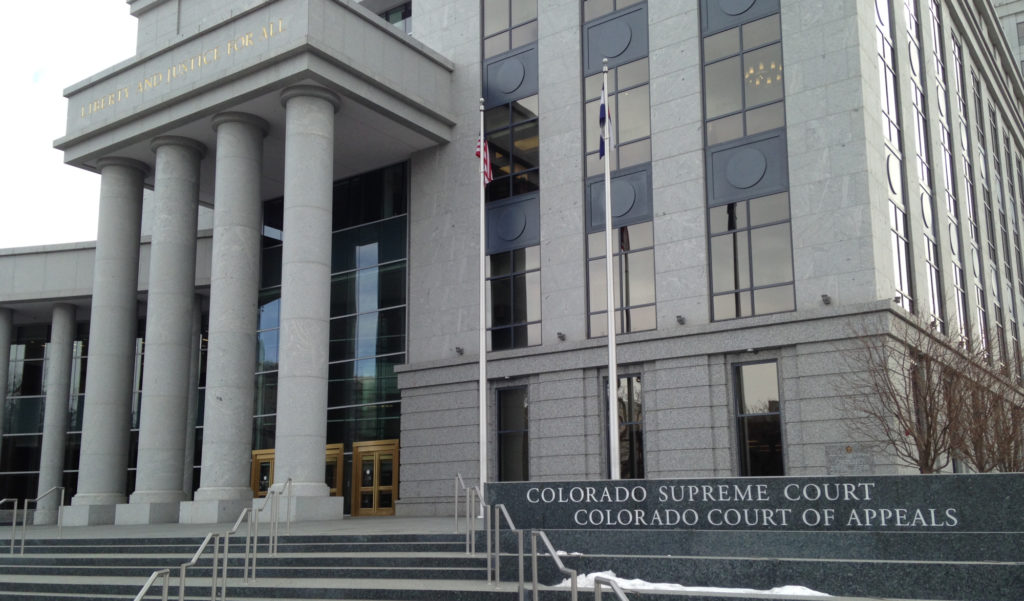By Jeffrey A. Roberts
CFOIC Executive Director
The state’s highest court should reaffirm that people who sue state and local government entities are still entitled to obtain public records from those entities by using the Colorado Open Records Act, the ACLU of Colorado and the Colorado Freedom of Information Coalition say in a new court filing.
The proposed friend-of-the-court brief, submitted by the organizations this week, urges the Colorado Supreme Court to uphold a 2022 appellate court opinion and “make clear that a party’s ability to use CORA to access public records is independent from and not constrained by discovery in civil litigation.”

“The fundamental question before the Court is whether a member of the public loses access to public records under CORA when she sues the government. Under the plain terms of CORA, the answer must be no,” says the brief, drafted by attorneys Laura Moraff, Anna Kurtz and Timothy Macdonald of the American Civil Liberties Union.
In December a year ago, a three-judge panel of the Court of Appeals rejected arguments made by the Archuleta County clerk that a litigant against the county must use the discovery process, rather than CORA, to get records from the county. The judges upheld a district court order in favor of Pagosa Springs attorney Matt Roane, who requested the recording of an Archuleta County Commission meeting while suing the board for allegedly violating the Colorado Open Meetings Law.
But the appellate court left open the possibility that a district court could restrict a litigant’s ability to use CORA as part of a trial management order or as part of discovery limits in a lawsuit against the government.
“Leaving open these possibilities would undermine CORA, prompt additional wasteful litigation, and embolden cities, counties, and other public entities to improperly deny CORA requests when the requesting person or organization is litigating against it,” the amicus brief contends. “The court of appeals opinion rightly recognizes that CORA includes no litigation exception, but wrongly invites governmental entities to effectively manufacture one by moving for restrictive CORA rulings as a matter of standard litigation practice.”
No language in CORA lets a records custodian withhold public records because a requester has sued that government entity. But CORA “expressly contemplates the availability of CORA requests as an alternative to discovery in pending litigation,” the brief notes, by preventing someone from recovering attorney fees and court costs if they prevail in a CORA lawsuit over records that could have been obtained via civil discovery.
“If the legislature intended for CORA requests to be limited by civil discovery rules, it could have so limited them; but it did not,” ACLU and CFOIC contend. “In enacting CORA, the legislature chose to allow litigants to file requests for open records.”
The Colorado Supreme Court, which announced in October it would review the Archuleta County case, previously addressed the public records/litigation discovery issue in a 1980 ruling, Martinelli v. District Court. Archuleta County claimed the decision backed up its claim that Roane should have used the discovery process in the Colorado Rules of Civil Procedure to obtain the recording.
But the Court of Appeals said the Martinelli ruling “stands for the proposition that CORA does not bar production of documents otherwise producible in civil litigation. It does not support Archuleta’s contention that individuals litigating against public entities are precluded from obtaining documents from those entities through CORA during the pendency of the litigation.”
The state Supreme Court should affirm that decision, the ACLU and CFOIC brief says, “and hold more clearly that the rules of civil procedure do not limit access to records under CORA.”
In its own amicus brief, Colorado Counties Inc. asks the Supreme Court to reverse the Court of Appeals decision in the Archuleta County case.
The Rules of Civil Procedure “are designed to empower District Courts to actively manage cases and to tailor discovery, pretrial proceedings, and case management to the specific circumstances of each case,” the CCI brief says. “The Rules should allow District Courts to consider the intersection of civil discovery and CORA requests.”
The Supreme Court, it adds, should “provide clear guidance and appropriate parameters reminding the District Courts of their robust case management authority in this regard, authority unrecognized and unconsidered by the Court of Appeals in its Opinion.”
Follow the Colorado Freedom of Information Coalition on Twitter @CoFOIC. Like CFOIC’s Facebook page. Do you appreciate the information and resources provided by CFOIC? Please consider making a tax-deductible donation.




